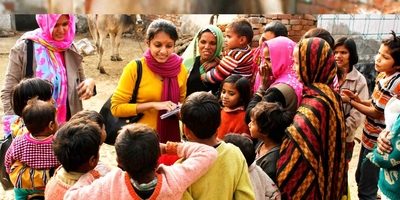
HENI Equilogue: How can communities drive change?: Evidence, advocacy and on-the ground-experiences of Community Action for Health to achieve health reform for all
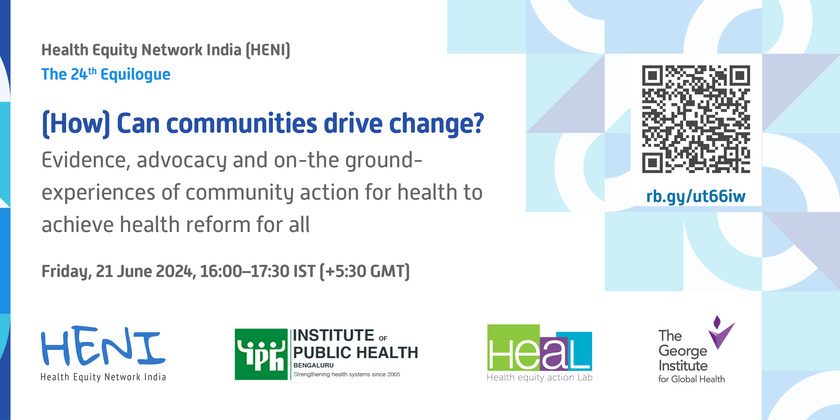
Social Participation for Health (SPH), also known as Community Action for Health (CAH) or Community Participation in Health, is a critical strategy for engaging communities and fostering citizen involvement in health issues. Recognised as a cornerstone for achieving Primary Health Care (PHC) and Universal Health Coverage (UHC), SPH has its roots in the Alma-Ata Declaration of 1978 and subsequent global health initiatives. It aims to empower communities, especially marginalized populations, to articulate their health needs and advocate for their rights. These efforts have emphasized the importance of decentralisation and active citizen engagement, striving to improve government responsiveness, cost-effectiveness, and accountability. This approach places communities and civil society organizations at the center of health policy and service design, ensuring these are aligned with the needs of the people and advancing the Leave No One Behind (LNOB) agenda.
In May 2024, global leaders will convene in Geneva at the World Health Assembly (WHA) to discuss the World Health Organization's (WHO) financial, programmatic, and strategic future. This assembly will include updates on existing health policy frameworks and the consideration of new ones. Notably, a resolution co-proposed by Slovenia and Thailand advocating for social participation in achieving UHC, health, and well-being is slated for discussion and potential adoption.
Building on the upcoming 77th World Health Assembly discussions, HENI’s 24th equilogue will explore the critical role of Community Action for Health (CAH) and Community-Based Organisations (CBOs) in driving Universal Health Coverage (UHC). Drawing on findings from an ongoing realist review by the SPHERE (Social Participation for Health: Engagement, Research, and Empowerment) consortium, this equilogue will serve as a platform for sharing emerging evidence on mechanisms that have emerged for enhancing inclusivity in health reforms across diverse global settings. This evidence will be further informed by insights from the forthcoming WHA assembly on resolution on social participation for health, especially its emphasis on the pivotal role of CBOs and ongoing deliberations about their contributions. Finally, to contextualise findings from the realist review and the resolution on social participation for health, the equilogue will highlight exemplary CAH models, initiatives, and the challenges encountered by CBOs in various Indian contexts, informed by the experiences of CBOs collaborating in The George Institute for Global Health's ongoing project, PATANG: Promoting Community Action for Health - A Co-Produced, Technology-Enabled Platform to Achieve National Goals.
Mark your calendars for 21st June 2024 | Friday | 1600-1730 IST
Speakers
Renu Khanna: SAHAJ, Gujarat; Distinguished Fellow, The George Institute for Global Health
Prabodh Nanda: Senior Programme Coordinator, State Health Resource Centre, Chhattisgarh
Raj Kumar Gope: Team Lead, Ekjut, Jharkhand
Shibanand Rath: Evaluation Manager, Ekjut, Jharkhand
Shraddha Mishra: Research Assistant, The George Institute for Global Health
Neymat Chadha: Research Fellow, The George Institute for Global Health
Devaki Nambiar: Program Director, The George Institute for Global Health
Format of the session: The webinar will start with a fireside chat hosted by Ms. Renu Khanna, co-founder and trustee of SAHAJ, featuring representatives from CBOs deeply involved with work encompassing varied CAH models in diverse Indian contexts.
Following this, a team from The George Institute for Global Health India sharing emerging findings from their realist review on SPH in global contexts, and a debrief on the deliberations surrounding the SPH agenda at the 77th WHA, with a particular focus on CBOs.
Agenda
| Time | Item |
| 15:45-16:00 IST | All panelists join on Zoom link |
| 16:00-16:05 IST | Welcome and Introduction by Devaki Nambiar* (HENI, The George Institute for Global Health, SPHERE) |
| 16:05-16:50 IST | Fireside chat on CAH models hosted by Ms Renu Khanna, SAHAJ, Gujarat, Distinguished Fellow, The George Institute for Global Health Participants: Prabodh Nanda, State Health Systems Resource Centre(SHRC), Chhattisgarh Rajkumar Gope, Ekjut, Jharkhand Shibanand Rath, Ekjut, Jharkhand |
| 16:50-17:00 IST | Presentation on realist review evidence on social participation and the role of CBOs in enhancing inclusivity for health reforms (Shraddha Mishra, The George Institute for Global Health) |
| 17:00 IST-17:10 IST | Debrief and key insights on SPH agenda, deliberations and contestations with a focus on CAH and CBOs (Neymat Chadha, The George Institute for Global Health) |
| 17:10-17:15 IST | Closing remarks |
Speakers
Renu Khanna (SAHAJ, Gujarat; Distinguished Fellow, The George Institute of Global Health)
Renu Khanna brings over four decades of experience in gender equality and human rights related to health. Her multifaceted journey includes roles as a practitioner, researcher, and mentor, engaging with marginalized communities at the grassroots level, civil society organizations, and national policymakers. In 1984, she co-founded SAHAJ (Society for Health Alternatives), which initially worked with urban poor waste-picking women. Over time, SAHAJ expanded its focus to address civil and political rights issues of the urban poor, including sexual and reproductive health and rights (SRHR). Currently, SAHAJ collaborates on an intersectional SRHR program involving marginalized communities such as Dalit, Adivasi, trans women, and girls with disabilities.
Renu worked for over 18 years in a tribal district with poor development indicators. During this time, she collaborated with the Public Health Department of the Bombay Municipal Corporation. As a Co-Principal Investigator, she contributed to collaborative projects with the Liverpool School of Tropical Medicine (LSTM) and the Royal Tropical Institute (KIT) Amsterdam. Currently, she serves as the Vice Chair of the Advisory Group of the ARISE Consortium led by LSTM.
Additionally, Renu taught a course on Gender, Health, and Rights at Azim Premji University (for MA Development Studies students in 2021 and 2022) and guides research for students and community-based organizations. Her active involvement in feminist and SRHR movements and coalitions within India, regionally, and globally allows her to translate grassroots lessons into potential policy measures. Over the years, she has made significant contributions to several UN organizations. Currently, she serves as a Lancet Commissioner for Gender and Global Health, a member of the Gender Advisory Panel of WHO, and a Distinguished Fellow at the George Institute, Australia.
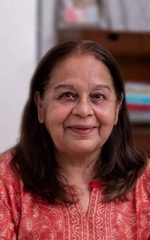
Prabodh Nanda (Senior Programme Coordinator, State Health Resource Centre,Chhattisgarh)
Prabodh Nanda pursued his Master’s in Social Work (MSW) from Utkal University, Bhubaneswar, Odisha. He has 20 years of experience in the field of academia and community development. For the last 13 years, he has been involved in public health, particularly in Community Processes activities. He is a certified National Trainer under the National Health Mission for Community Processes activities. He has several research publications on the work of Mitanin-Community Health Workers to his credit. He is a good mentor and an excellent team leader.
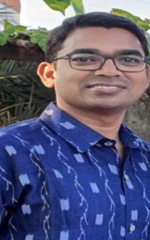
Raj Kumar Gope (Team Lead, Ekjut, Jharkhand)
Raj Kumar is a postgraduate in Rural Management with over two decades of experience working on health and nutrition issues through community empowerment. Currently, he serves as the Team Lead at Ekjut, a DASRA-Harvard Social Impact Leadership Fellow, and a member of the State Resource Group in Jharkhand under the National Health Mission. Additionally, he is a Leadership for Environment and Development (LEAD) Fellow. Raj Kumar has been actively involved in designing and implementing community-based and community-led programs centered around women’s groups to address health and nutritional issues. He has also co-authored several papers on the Participatory Learning and Action approach in health and nutrition. Furthermore, he contributes to capacity building for Officer Trainees at Lal Bahadur Shastri National Academy of Administration, using various participatory tools.
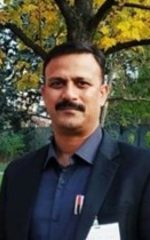
Shibanand Rath (Evaluation Manager, Ekjut, Jharkhand)
Shibanand Rath has been working in the social development sector for the last 24 years, with 19 of those years spent at Ekjut. His work involves designing manuals, providing training, implementing and evaluating community mobilization initiatives through women’s groups. These initiatives, known as Participatory Learning and Action (PLA), have been pioneered by Ekjut. Their goal is to improve maternal and child health and nutrition, address gender-based violence, and enhance the overall health, nutrition, and well-being of adolescents.
Shibanand is also involved in managing creches, focusing on nutrition and early childhood stimulation. He works on scaling up creche programs through the government system in various districts in Odisha, as well as through philanthropic efforts.In addition, Shibanand has led several evaluation studies in Odisha and Jharkhand to assess the impact of Participatory Learning and Action across various themes related to maternal and child health and nutrition. His research findings have been published in high-impact, peer-reviewed journals such as The Lancet, Lancet Global Health, and BMC Public Health. Furthermore, he contributes to capacity building for Officer Trainees (IAS, IPS, IRS) at Lal Bahadur Shastri National Academy of Administration, using various participatory tools. Shibanand holds a Master’s degree in Sociology from Central University, Hyderabad, and has a degree in International Health and Policy Evaluation from Erasmus University, The Netherlands
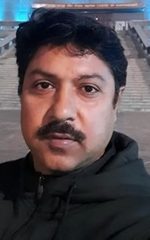
Shraddha Mishra (Research Assistant, The George Institute of Global Health)
Shraddha Mishra (MPH, BHSc) is a researcher at the George Institute for Global Health with seven years of experience in health advocacy. She uses an intersectional lens to collaborate at the interface of health promotion, scholarship, and community action for health and social justice. Within SPHERE’s secretariat, Shraddha plays a leading role in research-advocacy activities distilling lessons from participatory efforts, and provides technical support to collaborators in Argentina, Kenya, Tunisia and Vietnam. Among Shraddha’s favourite activities are (un)learning and imagining liberated futures for all, both of which will continue to guide her praxis as an incoming MD/PhD student and future physician-scientist.

Neymat Chadha (Research Fellow, The George Institute of Global Health)
Neymat is a Research Fellow at the George Institute of Global Health, focusing on community action for health and social participation, health equity, primary health care, and women’s health. She also supports the Secretariat of Social Participation for Health, Engagement, Research and Empowerment (SPHERE), with a particular focus on projects in Kenya, Vietnam, Argentina, and Tunisia. Trained as a sociologist with a specialization in medical sociology, Neymat is currently pursuing her PhD in social anthropology at the Indian Institute of Technology (IIT) in New Delhi. Her research involves an ethnographic study of early-age hysterectomies in India. Prior to joining GIGH, Neymat has worked as an independent consultant for several organizations, including Evidence Action and SPRF India. She has also served as a teaching assistant at IIT, Delhi.

Devaki Nambiar (Program Director, The George Institute of Global Health, India)
Devaki Nambiar is Program Director at the George Institute for Global Health India with appointments at the Manipal Academy of Higher Education, India, the University of New South Wales, Australia and the Harvard TH Chan School of Public Health, USA. For two decades, she has led mixed methods research, technical assistance, training and capacity-strengthening related to health policy and systems, with an emphasis on health equity and the social determinants of health. She has a passion for and commitment to social participation for health and is part of the Secretariat of the Social Participation for Health: Engagement Research and Empowerment (SPHERE) Consortium (www.spheretogether.org). She completed her doctorate from the Johns Hopkins Bloomberg School of Public Health in 2009



